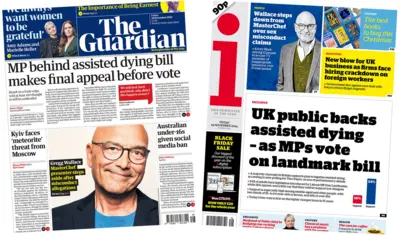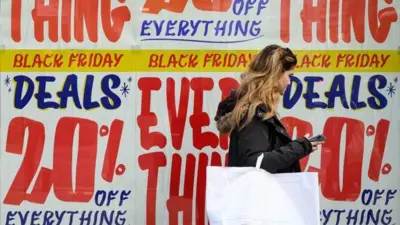We've updated our Privacy and Cookies Policy
We've made some important changes to our Privacy and Cookies Policy and we want you to know what this means for you and your data.
PM urged to give reassurances over Leveson Inquiry
Actor Hugh Grant is among phone-hacking victims who have expressed concern that David Cameron favours continued self-regulation of the media.
Mr Grant said self-regulation was a system which has "proven again and again to fail".
Dozens of phone-hacking victims have written to Mr Cameron urging him Lord Justice Leveson might make.
Mr Cameron said he did not want "heavy-handed state intervention".
He said: "We have got to have a free press".
In an interview on the Andrew Marr programme on ґуПуґ«ГЅ1, Mr Grant said he was worried by recent statements by senior Conservatives that appeared to suggest the prime minister would give the newspaper industry another chance to improve self-regulation.
The letter from the Hacked Off campaign said they believed self-regulation was "unsatisfactory".
It was signed by 60 phone-hacking victims, including Mr Grant, actor Jude Law and singer Charlotte Church. Among the other signatories are Sheila Coleman, spokeswoman for the Hillsborough Justice Campaign, 7/7 bombings victim John Tulloch and Christopher Jefferies, the Bristol landlord wrongly arrested over the murder of Jo Yeates in 2010.
They said they were "alarmed and distressed" by reports in the press and comments by senior MPs, that "you have already made up your mind and that you were 'preparing to reject statutory intervention in the regulation of the press even if it is strongly recommended by Lord Justice Leveson".
Mr Grant said that Leveson may recommend an independent regulator, "independent of the newspaper industry, but also, crucially, independent of government."
"The only bit of statute that might possibly be required would be to set the thing up in the first place," he said.
"Otherwise the danger is newspaper editors will just say 'what is this institution, this new body, this new regulator? We're not doing what you say, we're not paying you fines'."
The Leveson Inquiry, which was held at the Royal Courts of Justice, was prompted by the News of the World phone-hacking scandal.
Lord Justice Leveson is due to publish a report by the end of 2012 in which he will make recommendations on the future regulation of the press and conduct between the press, politicians and police.
'Crack the problem'
The prime minister was asked separately on the Marr show whether he would stick to his reported promise to implement the recommendations, providing they were not "bonkers", and said: "Absolutely."
He added: "We don't want heavy-handed state intervention. We have got to have a free press. They have got to be free to uncover wrongdoing, to follow the evidence, to do the job in our democracy that they need to do.
"But on the other hand, it is quite clear people have been abused, people's families and lives have been torn up by press intrusion.
"The status quo is not an option...
"I fully intend and - I think this goes right across the parties - we all want to put in place a sensible regulatory system.
"We are hoping Lord Justice Leveson is going to crack this problem for us. But we must let him do his work first."
The Leveson inquiry was set up to examine media culture, practice and ethics, with the first stage examining relationships the press has with public, politicians and police.
It heard evidence from victims, journalists, media executives and proprietors, police and politicians over an eight month period.
A second part of the inquiry, looking into the extent of unlawful or improper conduct within News International and other newspaper media organisations, will not get under way until police investigations are concluded.
Top Stories
More to explore
Most read
Content is not available








